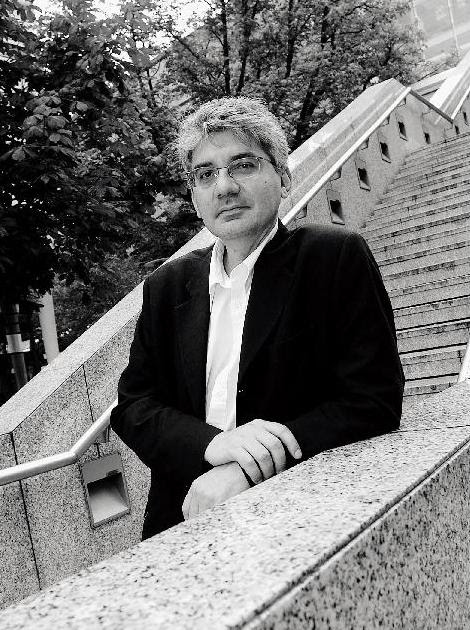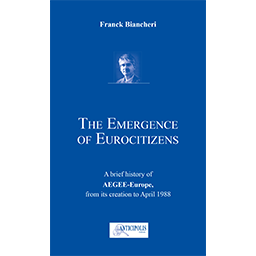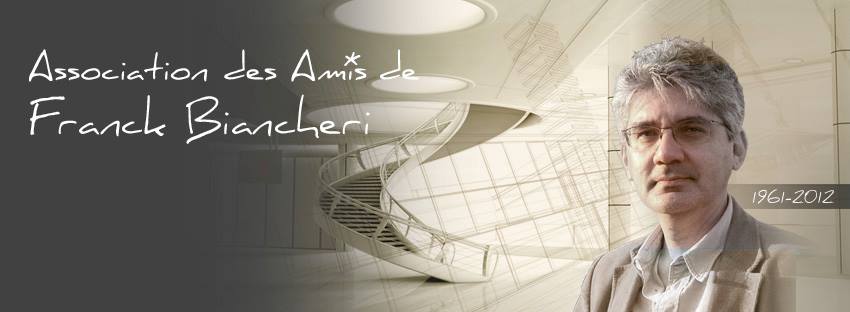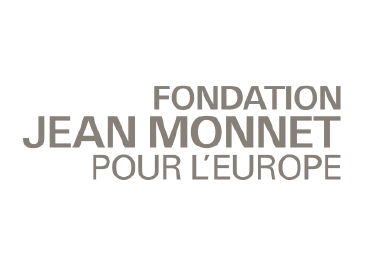[:en] Barely 6 weeks after the European elections, the spectacle of the EU political system becomes pathetic. Once again, a combined election between the EPP and the PES to share the influence and financial resources allocated to the groups dominating the Strasbourg assembly: without common political objectives or common legislative programmes, of course. How could the voter give political credit to a Parliament where the two so-called opposing “parties” (left and right) share functions in complete privacy when six weeks ago, we heard them explain how irreconcilable their visions of Europe were? The maintenance of this method of “controlled cutting” of key positions in the European Parliament by the EPP and the PES has undoubtedly further increased the number of people abstaining from the next European election; and also the number of voters from populist parties.
Barely 6 weeks after the European elections, the spectacle of the EU political system becomes pathetic. Once again, a combined election between the EPP and the PES to share the influence and financial resources allocated to the groups dominating the Strasbourg assembly: without common political objectives or common legislative programmes, of course. How could the voter give political credit to a Parliament where the two so-called opposing “parties” (left and right) share functions in complete privacy when six weeks ago, we heard them explain how irreconcilable their visions of Europe were? The maintenance of this method of “controlled cutting” of key positions in the European Parliament by the EPP and the PES has undoubtedly further increased the number of people abstaining from the next European election; and also the number of voters from populist parties.
In this regard, the UKIP “puppets” reveal their intentions. Behind the fat and brutal provocation (yesterday, on women; tomorrow, I imagine, on immigrants, the poor, the disabled, the intellectuals, and all those who do not look like an average “beauf”), they no longer talk about “breaking” the European Parliament, but on the contrary are starting to take their marks there. We will see over the next few years, through their votes in particular, who this type of party “rolls” for. Let’s be wary, they are undoubtedly a “prototype” for a larger scale operation in the 2009 European elections. And it is not these political fictions that the EPP and the PES are that will be able to oppose it. On the contrary, they generate, by their very political powerlessness, this type of populism.
Moreover, the EPP and PES do not even have political leaders with a European dimension. Their group leaders, or candidates for key positions, come and go from one legislature to another, and even during the legislature, according to obscure arrangements, agreements between apparatuses, incomprehensible to the uninitiated. In fact, they are managed like the Commission or the Council: opacity, bureaucratic management, refusal of “personalisation”, conviction that the public does not have to know what is being done in its “interest”,… Moreover, the fact that an increasing number of European civil servants* are being elected to the European Parliament, particularly via these two parties, must further reinforce this trend. Thus only a few names like Cohn-Bendit or Jens Peter Bonde manage to survive as identifiable political individuals. The rest is as “grey” in the eyes of the public as an administration is.
Meanwhile, our populist, extremist and xenophobic “friends” are making progress, against a backdrop of growing European abstentionism; and lobbyists are swimming like fish in water… but don’t worry, the EPP and the PES (80% of Europeans are not even aware of their existence) have just found work for two successive Europeans for the next 5 years at the helm of the European Parliament. It’s beautiful as a political twilight!
And don’t tell me that we can’t do otherwise. Everything is ready to create a trans-European democracy: the challenges, public opinion, technology and methods are there. There is still a clear lack of politicians to build it. Cheer up, they’re coming!
* Call to readers: if anyone knows the exact number of this strange and growing trend of community political incest, I am a taker.
Franck Biancheri
Paris (France) – July 2004
[divider][:fr] A peine 6 semaines après les élections européennes, le spectacle du système politique communautaire devient pathétique. A nouveau, une élection combinarde entre le PPE et le PSE pour se partager l’influence et les moyens financiers attribués aux groupes dominant l’assemblée de Strasbourg : sans objectifs politiques communs, ni programmes communs de législature bien entendu. Comment l’électeur pourrait-il accorder du crédit politique à un Parlement où les deux soi-disant « partis » opposés (gauche et droite) se partagent les fonctions en toute intimité alors qu’il y a six semaines, on les entendait expliquer combien leurs visions de l’Europe étaient inconciliables ? Le maintien de cette méthode de « mise en coupe réglée » des postes-clés du Parlement européen par le PPE et le PSE vient sans aucun doute d’accroître encore le nombre d’abstentionnistes de la prochaine élection européenne ; et aussi celui des électeurs des partis populistes.
A peine 6 semaines après les élections européennes, le spectacle du système politique communautaire devient pathétique. A nouveau, une élection combinarde entre le PPE et le PSE pour se partager l’influence et les moyens financiers attribués aux groupes dominant l’assemblée de Strasbourg : sans objectifs politiques communs, ni programmes communs de législature bien entendu. Comment l’électeur pourrait-il accorder du crédit politique à un Parlement où les deux soi-disant « partis » opposés (gauche et droite) se partagent les fonctions en toute intimité alors qu’il y a six semaines, on les entendait expliquer combien leurs visions de l’Europe étaient inconciliables ? Le maintien de cette méthode de « mise en coupe réglée » des postes-clés du Parlement européen par le PPE et le PSE vient sans aucun doute d’accroître encore le nombre d’abstentionnistes de la prochaine élection européenne ; et aussi celui des électeurs des partis populistes.
A ce propos, les « pantins » du UKIP dévoilent leurs intentions. Derrière la provocation grasse et brutale (hier, sur les femmes ; demain, j’imagine, sur les immigrés, les pauvres, les handicapés, les intellectuels, et tous ceux qui ne ressemblent pas à un « beauf » moyen), ils ne parlent plus de “casser” le Parlement européen, mais au contraire commencent à y prendre leurs marques. On va voir au gré des prochaines années, à travers leurs votes notamment, pour qui « roulent » ce type de partis. Méfions nous, ils sont sans aucun doute un « prototype » pour une opération de plus grande échelle aux élections européennes de 2009. Et ce n’est pas ces fictions politiques que sont le PPE et le PSE qui pourront s’y opposer. Au contraire, ils génèrent, par leur impuissance politique même, ce type de populismes.
D’ailleurs, le PPE et PSE n’ont même pas de leaders politiques à dimension européenne. Leurs dirigeants de groupes, ou leurs candidats aux postes-clés, vont et viennent d’une législature à l’autre, et même pendant la législature, en fonction d’arrangements obscurs, d’accords entre appareils, incompréhensibles pour les non initiés. En fait, ils sont gérés comme la Commission ou le Conseil : opacité, gestion bureaucratique, refus de la “personnalisation”, conviction que le public n’a pas à connaître ce qui est fait dans son « intérêt », … D’ailleurs, le fait qu’un nombre croissant de fonctionnaires européens* se fassent élire au Parlement européen, notamment via ces deux partis, doit encore renforcer cette tendance. Ainsi seuls quelques noms comme Cohn-Bendit ou Jens Peter Bonde arrivent à surnager en tant qu’individualités politiques identifiables. Le reste est aussi « gris » aux yeux du public que l’est une administration.
Pendant ce temps-là nos petits « amis » populistes, extrémistes, xénophobes progressent, sur fond d’abstentionnisme européen croissant ; et les lobbyistes nagent comme des poissons dans l’eau … mais qu’on ne s’inquiète pas, le PPE et le PSE (dont d’ailleurs 80% des Européens ignorent même l’existence) viennent de trouver du travail à deux Européens qui se succèderont pour les 5 années à venir à la tête du Parlement européen. C’est beau comme un crépuscule politique !
Et qu’on ne me dise pas qu’on ne peut pas faire autrement. Tout est prêt pour créer une démocratie trans-européenne : les enjeux, les opinions publiques, la technologie, les méthodes sont là. Ils manquent visiblement encore les femmes et les hommes politiques pour la construire. Courage, ils arrivent !
* Appel aux lecteurs : si quelqu’un connaît le chiffre exact de cette étrange et croissante tendance d’inceste politique communautaire, je suis preneur.
Franck Biancheri
Paris (France) – Juillet 2004
[divider]
[:]





